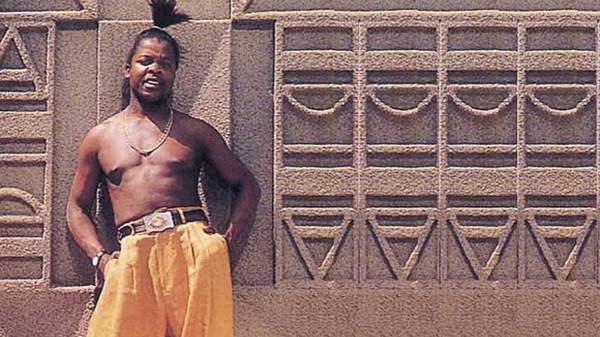Overview
"I've never been to school, but I can read and write." Penny Penny takes a moment to chat from Limpopo, the northern South African province where he grew up. Born Giyani Kulain in 1962, the cult musician was just four years old when his father passed away; a local doctor who left behind his 25 wives and 68 children.
"After that, we started to suffer a lot," Penny says. "I taught myself [literacy], because I suffered so much. In 1968, I started working on a farm, then I worked in a mine, then I went to the village and sold vegetables and then I worked in a restaurant... Everything I've done, I've done it myself."
For the 52-year-old dubbed "the next Rodriguez" by Rolling Stone, this independent drive lead him to singing — except that it didn't involve so much arduous autodidacticism. "I never learned to sing," he says. "Singing just happened." In 1994, while working as a cleaner in a Johannesburg music studio, Penny approached producer Joseph Shirimani, who related the meeting in a 2013 Rolling Stone interview. "I said, 'Can you sing?'. [Penny] didn't say yes — he just sang a song for me. And that's when I heard this unusual voice and those melodies."
The resulting collaboration led to the recording of the song 'Shaka Bundu'. Its infectious combination of traditional melody, Tsonga disco and contemporary dance pop sold 250,000 copies, turning the odd jobs man into a national star. "'Shaka Bundu' means 'bad guy', trouble," Penny explains. "I had a girlfriend for more than eight years. After I lost my job, she dumped me. And one of my friends, who used to come to my house, he proposed to her. That's where the song comes from, you see." He breaks off the story in favour of singing the chorus down the phone.
Several subsequent albums continued to keep the fans dancing in South Africa, but (like the music of Rodriguez) didn't receive much international attention. That was until a few years ago, when a Penny Penny cassette landed on the desk of DJ and Awesome Tapes from Africa blogger Brian Shimkovitz. "It took a bit of time to track down the busy politician, humanitarian and stadium-filling musician," Shimkovitz wrote. But track him down he did, releasing 'Shaka Bundu' worldwide on November 12 last year.
"People like it a lot in Africa," Penny says. "Then I find out that they like it in Australia — and that makes me happy. I've seen Australia on television; I've read about it on the news. I never believed that I would come to meet you, on that side. I think I'll kiss the soil when I land there."
He's sorry though, that he won't get the chance to meet Yothu Yindi. "I heard that he passed away recently. He is one of my favourite Australian musicians. That song [he starts singing 'Treaty'] was very big in Africa. I though maybe I'd see him one day, but no."
Like Yothu Yindi, Penny is an activist. In fact, in 2011 he became an African National Congress (ANC) Council Member — the first African musician to do so. "I just want to give something back to the community," he says. "Politics is fine, but my heartbeat is music."
When he plays VIVID as part of Goodgod's Tin Pan Alley, he'll be bringing a ten-piece band along for the ride. "You can expect to see me dancing up there. When I see people on the dance floor — 75,000 people, 90,000 people — if more people want to come, I say let them come! I've been asking myself, 'How to introduce my style of dancing to Australia?' I want to leave the country dancing my style, with my spirit. I want to leave my mark."
Penny Penny will headline Good God Small Club's Tin Pan Alley in the Joan Sutherland Theatre on Friday May 30 for Vivid LIVE.
He'll be joined by Bart Willoughby of seminal indigenous band No Fixed Address, ever theatrical Royal Headache frontman Shogun flying solo, Melbourne soft rockers Montero and Sydney's indescribable Donny Benét. Head here for more details.
